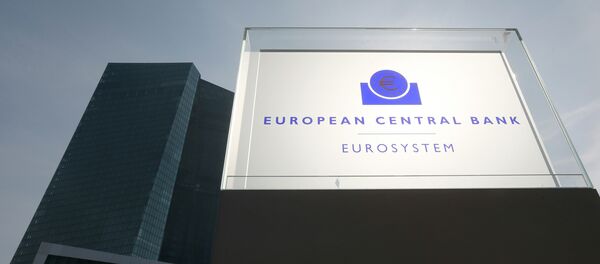Kristian Rouz — Popular support for the UK leaving the European Union (EU) exceeded that of the "Stay" vote endorsed by the vast majority of the British policymakers, as evidenced by poll results released on Monday, rendering investors across the globe jumpy amidst anticipations of major shifts in the global financial landscape. With the sterling FX rate poised to drop along with the City of London capitalization possibly suffering a blow, and the Bank of England's (BOE) base interest rates expected to go up, global investors are closing positions on the riskiest assets, including many stocks, whilst piling into safe havens such as the Japanese yen.
According to the Guardian/ICM EU referendum tracker published on June 13, 50 (53) per cent of Britons are inclined to vote "out" on the June 23 referendum, whilst only 45 (47) per cent are favoring the "In" vote. Previously, the British PM David Cameron, along with prominent members of his New Tory cabinet, endorsed the "In" option, suggesting the risks of a Brexit scenario would outweigh possible gains for the UK. Members of the shadow cabinet, led by Ed Miliband of the Labour Party, have also previously backed the "Stay" vote.
The "Out" campaigners, led by the UKIP's Nigel Farage, and the ex-mayor of London Boris Johnson, point out the greater economic benefits for the nation in the longer run far outweigh the short-term challenges of the shock to the financial markets the Brexit scenario is likely to trigger.
A fortnight ago, another ICM poll also demonstrated greater popular support for Brexit, with a 52-48 divide between the "Out" and "In" vote supporters. The new numbers indicate support for the "Out" vote is gaining momentum just ten days ahead of the referendum.
"These results are consistent with the generality of numbers over the last couple of weeks, in which there has been some weakening in the ‘Remain' position. It was already plain that this race was far closer than the prime minister intended, and he must now be feeling discomfort at the thought that the outcome really could be in doubt," John Curtice, a professor at Strathclyde University, said as reported by the Guardian in their poll results release.
The Brexit scenario is poised to bring severe near-term disruptions in the broader European economy due to the lack of understanding of the mechanisms of economic separation of Britain from the mainland among market participants. Subsequently, Asian exports are expected to take a plunge, as Europe in general is among the biggest markets for the exports of, most prominently, mainland China. Therefore, a Brexit would exacerbate the slowdown of the Chinese economy.
Whilst exports from Asia to the UK are driving some 0.7% of the regional GDP, a 25% crash in demand for Asian-made goods and services in Britain (stemming from the expected plunged in the sterling's FX rate) would deduct some 0.2% from the Asian GDP growth in the coming quarters. Later on, as the BOE policy response and the overall shock-resilience adjustment would boost the pound's value, the trading pattern might restore somewhat.
"Investors are worried that the global stagnation scenario will come back and the possibility of a Brexit exacerbates that," Khiem Do of Hong Kong-based Baring Asset Management said. Yet, although the shock to the markets would be significant, no grave negative consequences should be expected. "It's just on the (Brexit) day there could be confusion," Do said. Riskiest assets would extend losses, and certain wealth funds might see a drop in capitalization, but the relative strength of the British economy would still attract capital.
Another safe haven option is Japan, where the yen has seen a massive appreciation from the start of the year to its current FX rate of 106.22 yen per US dollar from its last year's trading range of 118-125.
All in all, the coming 10 days are most likely to be a sell-off period for the global assets most exposed to locally-motivated risks, with Brexit perspective only highlighting the existing trends.



